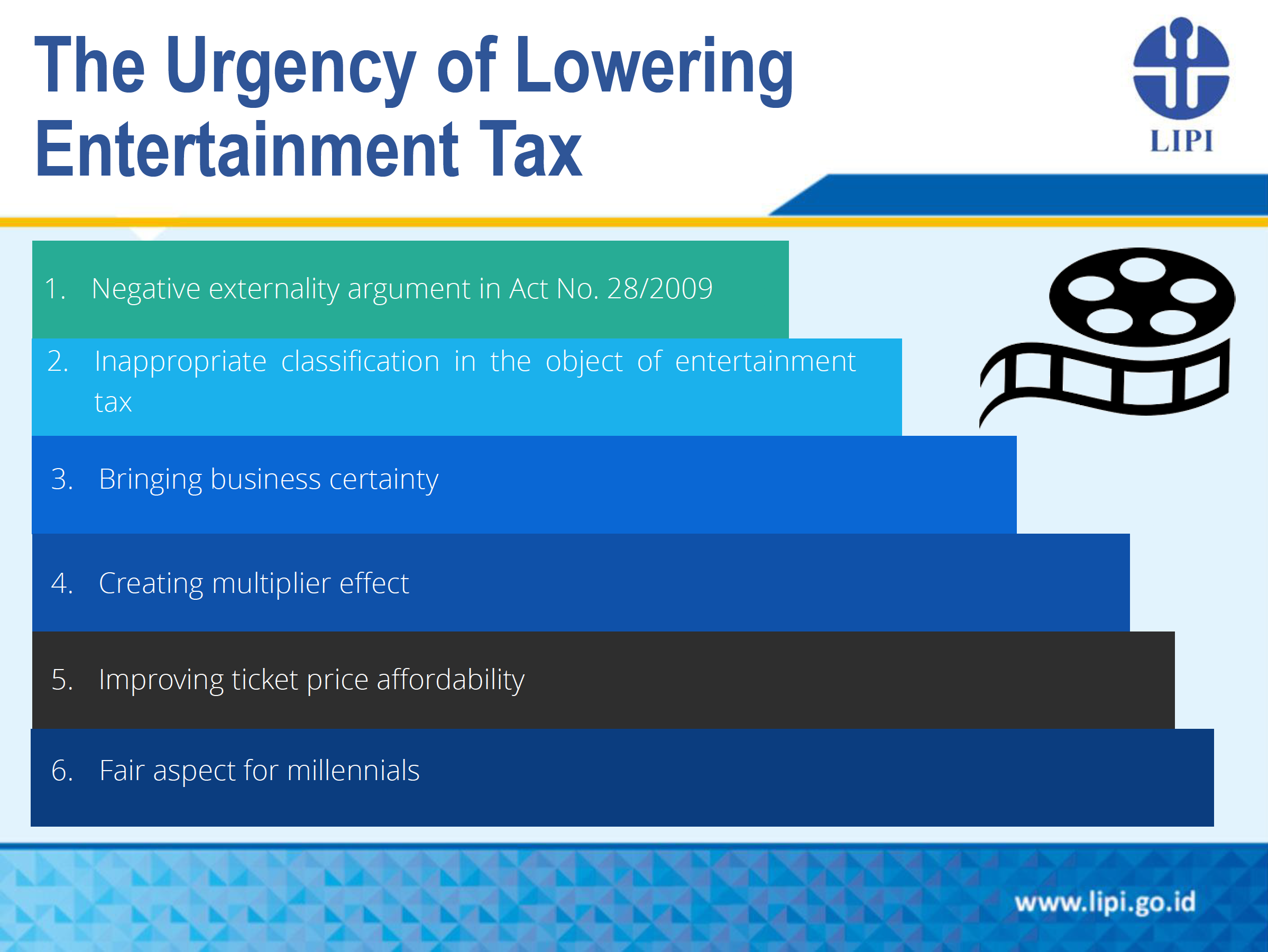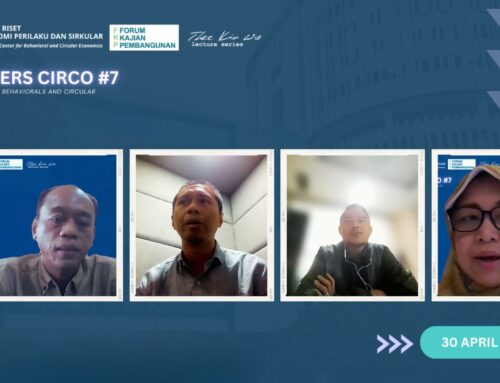Pihri Buhaerah giving the presentation
The numbers of film production and film audiences in Indonesia are increasing, indicating the economic potentials of the industry to generate revenue. However, the growth of the film industry is not accompanied by an increase in the number of cinema screens. Cinemas are still concentrated in Java. It is thought that one of the factors hampering investment in cinemas in ‘second cities’ is the tax rate on move tickets. The current tax rate for movie tickets is very widely variable in Indonesia, i.e. between 0% and 35%. Does the tax rate need to be lowered? What is the optimal tax rate on cinema tickets? Pihri Buhaerah (Pusat Penelitian Ekonomi LIPI) discussed the research on this topic at FKP on 11 February 2020 hosted by BI Institute.
Researchers used qualitative and quantitative approaches in analyzing the issue tax on movie tickets. The study collected data from 10 cities. The research resulted in several findings. One of the findings is how flexibility in setting the tax rates of up to 35% may create uncertainty for cinema owners such as in the case of Makassar, where owners were subjected to a 10% rate when they first opened a cinema, but later subjected to a 15% rate. Another finding is how incentivizing investors to open cinemas through a lower tax rate multiplies the local governments’ tax revenue as evident in Ternate and Tegal. Moreover, as cinema audiences in ‘second cities’ prefer national films, increasing the presence of cinema may boost the number of national film viewers. Researchers argued that this yields a positive externality; hence a lower tax rate should be imposed to incentivize investors.
This research then suggests an optimal tax rate to be imposed with an affirmative policy. Using threshold regression and cross-section and panel data analysis, this research found the optimal tax rate to lie between 10% and 15%. The range provides optimal revenues for local governments while providing certainty for cinema investors. To complement the tax rate, affirmative policies can be implemented to promote the national film industry such as by distinguishing the tax rate between foreign and national films and/or providing tax exemptions for independent cinemas.
For the complete presentation and Q&A session, please refer to the video and materials provided.






